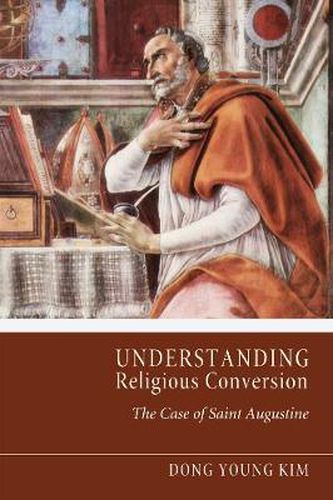Readings Newsletter
Become a Readings Member to make your shopping experience even easier.
Sign in or sign up for free!
You’re not far away from qualifying for FREE standard shipping within Australia
You’ve qualified for FREE standard shipping within Australia
The cart is loading…






This title is printed to order. This book may have been self-published. If so, we cannot guarantee the quality of the content. In the main most books will have gone through the editing process however some may not. We therefore suggest that you be aware of this before ordering this book. If in doubt check either the author or publisher’s details as we are unable to accept any returns unless they are faulty. Please contact us if you have any questions.
Understanding Religious Conversion begins with emphasis on the value of respecting religious/theological interpretations of conversion while coordinating social scientific studies of how personal, social, and cultural issues are relevant to the human transformational process. It encourages us to bring together the perspectives of psychology, sociology, anthropology, and religious studies into critical and mutually-informing conversation for establishing a richer and more accurate perception of the complex phenomenon of religious conversion. The case of St. Augustine’s conversion experience superbly illustrates the complicated and multidimensional process of religious change. By critically extending the contributions of the literature within Lewis Rambo’s interdisciplinary framework, Dong Young Kim presents a more integrated picture of how personal, social, cultural, and religious/theological components interact with one another in the process of Augustine’s conversion. In doing so, he has struggled with how to relocate more effectively and practically the conversion narrative of Augustine within the context of pastoral care and ministry (and the field of the academy)–in order to facilitate a better understanding of the conversion stories of the church members as well as to enhance the experiences of religious conversion within the Christian community.
$9.00 standard shipping within Australia
FREE standard shipping within Australia for orders over $100.00
Express & International shipping calculated at checkout
This title is printed to order. This book may have been self-published. If so, we cannot guarantee the quality of the content. In the main most books will have gone through the editing process however some may not. We therefore suggest that you be aware of this before ordering this book. If in doubt check either the author or publisher’s details as we are unable to accept any returns unless they are faulty. Please contact us if you have any questions.
Understanding Religious Conversion begins with emphasis on the value of respecting religious/theological interpretations of conversion while coordinating social scientific studies of how personal, social, and cultural issues are relevant to the human transformational process. It encourages us to bring together the perspectives of psychology, sociology, anthropology, and religious studies into critical and mutually-informing conversation for establishing a richer and more accurate perception of the complex phenomenon of religious conversion. The case of St. Augustine’s conversion experience superbly illustrates the complicated and multidimensional process of religious change. By critically extending the contributions of the literature within Lewis Rambo’s interdisciplinary framework, Dong Young Kim presents a more integrated picture of how personal, social, cultural, and religious/theological components interact with one another in the process of Augustine’s conversion. In doing so, he has struggled with how to relocate more effectively and practically the conversion narrative of Augustine within the context of pastoral care and ministry (and the field of the academy)–in order to facilitate a better understanding of the conversion stories of the church members as well as to enhance the experiences of religious conversion within the Christian community.